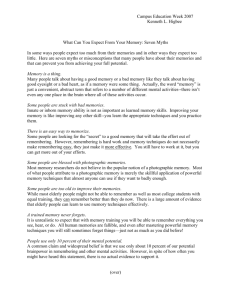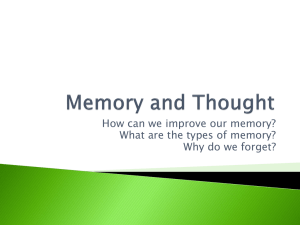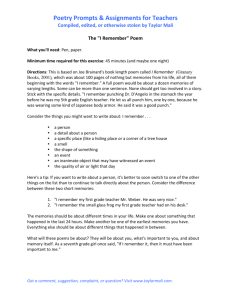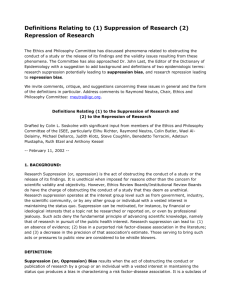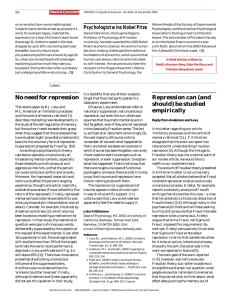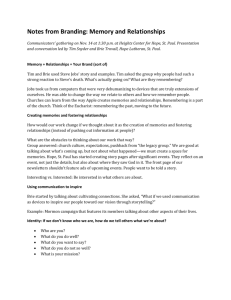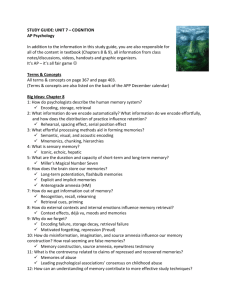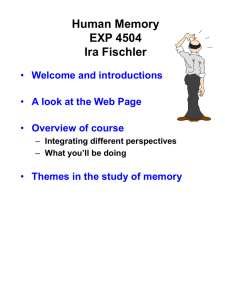Why Do We Forget
advertisement
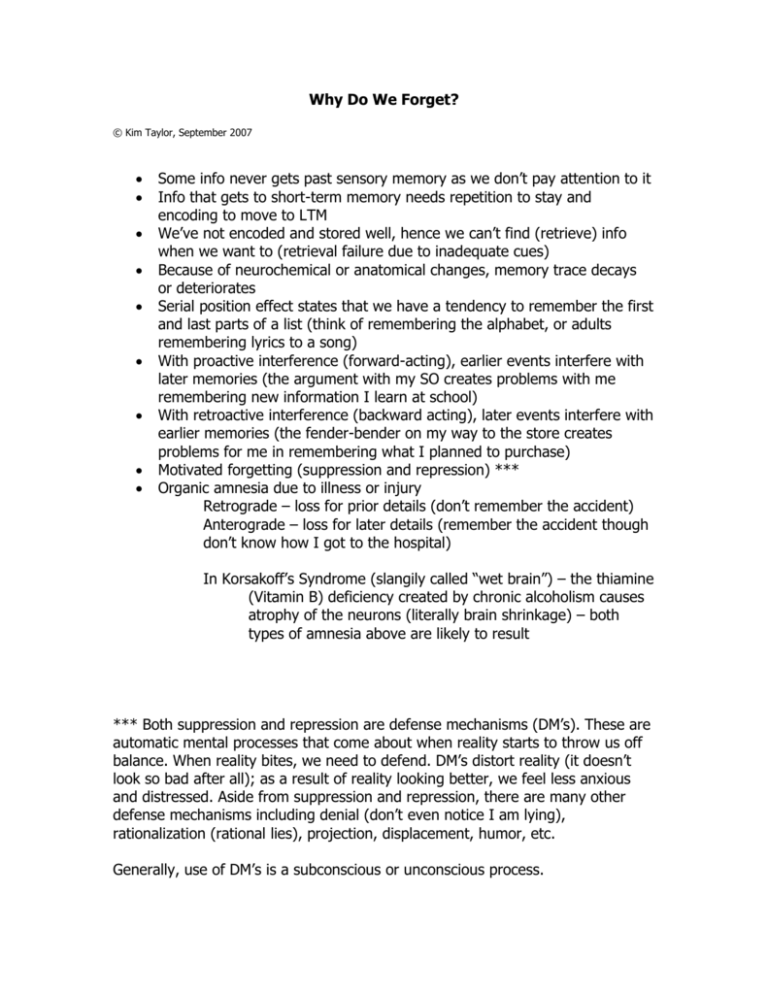
Why Do We Forget? © Kim Taylor, September 2007 Some info never gets past sensory memory as we don’t pay attention to it Info that gets to short-term memory needs repetition to stay and encoding to move to LTM We’ve not encoded and stored well, hence we can’t find (retrieve) info when we want to (retrieval failure due to inadequate cues) Because of neurochemical or anatomical changes, memory trace decays or deteriorates Serial position effect states that we have a tendency to remember the first and last parts of a list (think of remembering the alphabet, or adults remembering lyrics to a song) With proactive interference (forward-acting), earlier events interfere with later memories (the argument with my SO creates problems with me remembering new information I learn at school) With retroactive interference (backward acting), later events interfere with earlier memories (the fender-bender on my way to the store creates problems for me in remembering what I planned to purchase) Motivated forgetting (suppression and repression) *** Organic amnesia due to illness or injury Retrograde – loss for prior details (don’t remember the accident) Anterograde – loss for later details (remember the accident though don’t know how I got to the hospital) In Korsakoff’s Syndrome (slangily called “wet brain”) – the thiamine (Vitamin B) deficiency created by chronic alcoholism causes atrophy of the neurons (literally brain shrinkage) – both types of amnesia above are likely to result *** Both suppression and repression are defense mechanisms (DM’s). These are automatic mental processes that come about when reality starts to throw us off balance. When reality bites, we need to defend. DM’s distort reality (it doesn’t look so bad after all); as a result of reality looking better, we feel less anxious and distressed. Aside from suppression and repression, there are many other defense mechanisms including denial (don’t even notice I am lying), rationalization (rational lies), projection, displacement, humor, etc. Generally, use of DM’s is a subconscious or unconscious process. Repression: Think “repressed memories” or “repressed anger”. That is, the memories or anger are shoved down so far that the individual doesn’t know they exist at all. Suppression: This is often a conscious (and very healthy) DM. You receive some upsetting news right before a final exam. To suppress means that you intentionally put aside your thoughts and feelings about the news so that you can focus and do well on your exam; after the exam, you address the issue. Could you do this? How is this skill important in life? It takes practice to learn. Keep at it.

